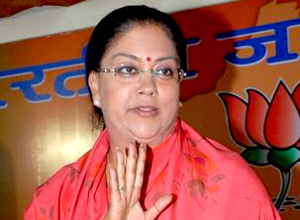New Delhi, May 18: The nationwide tally of COVID-19 cases crossed one lakh on Monday with more people testing positive for the deadly virus in Maharashtra, Gujarat, Tamil Nadu and other states, even as a much-relaxed fourth phase of the lockdown began with restarting of market complexes, autos, taxis and inter-state buses in various parts of the country.
The death toll due to COVID-19 crossed the 3,000-mark too.
With an aim to reboot numerous locked down economic activities, authorities across the country ordered reopening of markets, intra-state transport services and even of barber shops and salons in some states, barring in containment zones.
However, schools, colleges, theatres, malls and religious gatherings are among those that would remain shut down, at least till May 31.
India has been under a lockdown since March 25, which was first supposed to be for 21 days or toll April 14, but was later extended till May 3, then further till May 17 and now for another two weeks till May 31.
However, a number of relaxations have been given in the current fourth phase, while states and union territories have also been granted significant flexibility for deciding the red, orange or green zones in terms of the quantum and severity of the virus spread.
In its morning 8 AM update, the Union Health Ministry put the total number of confirmed COVID-19 cases 96,169 and the death toll at 3,029.
It also said that 36,824 people have so far recovered from the infection.
However, a news agency tally of figures announced by different states and UTs as of 9.40 PM put the number of those having tested positive for the infection at 1,00,096, with a death toll of 3,078 and recoveries at 38,596 across the country.
Maharashtra topped the nationwide tally with over 35,000 confirmed cases and 1,249 deaths, followed by Tamil Nadu with 11,760 confirmed cases and 81 deaths.
Gujarat has also reported 11,746 confirmed cases, while its death toll is higher than that of Tamil Nadu at 694.
Delhi has also crossed the 10,000 mark in terms of the number of confirmed cases, while its death toll has now reached 160.
Gujarat, during the day, recorded 366 new COVID-19 cases and 35 deaths, including 31 from the worst-hit Ahmedabad, taking the state's case count to 11,746 and the number of fatalities to 694, a health department official said.
Maharashtra reported 2,033 new cases, taking the tally to 35,058.
This was the second consecutive day when the state has reported more than 2,000 COVID-19 cases.
Mumbai alone reported 1,185 fresh cases and 23 more deaths, taking the total count of the city to 21,152 and the fatalities to 757.
Of the 1,185 new cases, 300 samples were tested positive in private laboratories between May 12 and 16.
Kerala also saw 29 new cases -- all but one being returnees from overseas and other states -- raising concerns about the state witnessing a possible third wave of the dreaded virus infection.
The state was first to report the virus infection, but at least twice it has already been seen as having flattened the curve of the infection.
The nationwide count of confirmed infections incidentally crossed the crucial one-lakh mark on a day when the fourth phase of the nationwide lockdown kicked in with several relaxations for economic and public activities, barring in containment zones or areas identified as serious hotspots of the virus infection.
Revising its strategy for COVID-19 testing, ICMR also said on Monday that returnees and migrants who show symptoms for influenza-like illness will be tested for coronavirus infection within seven days of ailment and stressed that no emergency clinical procedure, including deliveries, should be delayed for lack of testing.
The Indian Council of Medical Research (ICMR) in its revised strategy for coronavirus testing in India also added that all hospitalised patients who develop symptoms for influenza-like illness (ILI) and frontline workers involved in containment and mitigation of COVID-19 having such signs will also be tested for coronavirus infection through RT-PCR test.
Besides, asymptomatic direct and high-risk contacts of a confirmed case are to be tested once between day five and day 10 of coming in contact, the new document stated.
Asymptomatic contacts of a confirmed case were being tested once between day five and day 14.
The Health Ministry also said that for every one lakh population, there are 7.1 coronavirus cases in India so far as against 60 globally.
It also said the recovery rate of coronavirus cases in India stood at 38.39 per cent.
Besides, India also joined nearly 120 countries at a crucial conference of the World Health Organisation in pushing for an impartial and comprehensive evaluation of the global response into the coronavirus crisis as well as to examine the origin of the deadly infection.
Since the first case of the deadly coronavirus was reported in China last December, more than 47 lakh people have tested for this virus across the world and over 3 lakh have lost their lives.
India is the 11th most affected country, while the US tops the chart with over 14.9 lakh confirmed cases so far.
China's official tally of confirmed infections is less than 84,000, while it has reported more than 4,600 deaths.
 Jaipur, Dec 13: Vasundhara Raje, who led the Bharatiya Janata Party to a historic win in Rajasthan, will on Friday be sworn-in as the Chief Minister in Jaipur.
Jaipur, Dec 13: Vasundhara Raje, who led the Bharatiya Janata Party to a historic win in Rajasthan, will on Friday be sworn-in as the Chief Minister in Jaipur.




Comments
Add new comment